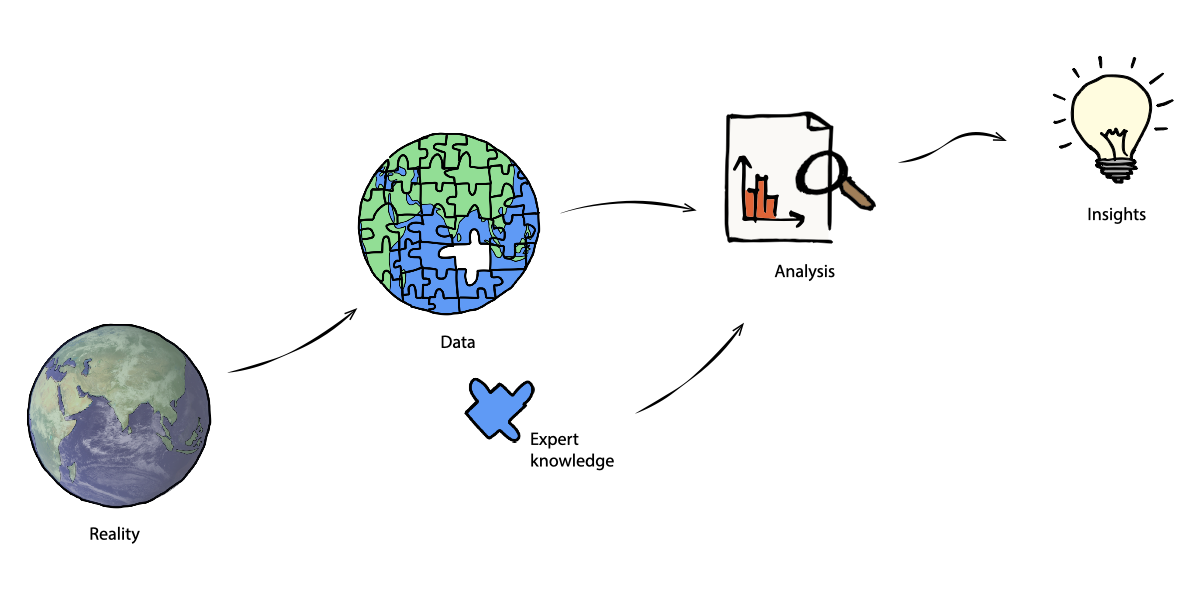
Abstract
Data-driven decision making has become a popular practice in science, industry, and public policy. Yet data alone, as an imperfect and partial representation of reality, is often insufficient to make good analysis decisions. Knowledge about the context of a dataset, its strengths and weaknesses, and its applicability for certain tasks is essential. Analysts are often not only familiar with the data itself, but also have data hunches about their analysis subject. In this work, we present an interview study with analysts from a wide range of domains and with varied expertise and experience, inquiring about the role of contextual knowledge. We provide insights into how data is insufficient in analysts’ workflows and how they incorporate other sources of knowledge into their analysis. We analyzed how knowledge of data shaped their analysis outcome. Based on the results, we suggest design opportunities to better and more robustly consider both knowledge and data in analysis processes.
Citation
Haihan Lin,
Maxim Lisnic,
Derya Akbaba,
Miriah Meyer,
Alexander Lex
Here’s what you need to know about my data: Exploring Expert Knowledge’s Role in Data Analysis
IEEE Transactions on Visualization and Computer Graphics (VIS), 32(1): 1186–1196, doi:10.1109/TVCG.2025.3634821, 2026.
IEEE VIS 2025 Honorable Mention Award
BibTeX
@article{2025_vis_data_hunch_interview,
title = {Here’s what you need to know about my data: Exploring Expert Knowledge’s Role in Data Analysis},
author = {Haihan Lin and Maxim Lisnic and Derya Akbaba and Miriah Meyer and Alexander Lex},
journal = {IEEE Transactions on Visualization and Computer Graphics (VIS)},
doi = {10.1109/TVCG.2025.3634821},
volume = {32},
number = {1},
pages = {1186–1196},
month = {jan},
year = {2026}
}
Acknowledgements
We would like to thank our interviewees for their time and participation in the study, and the Visualization Design Lab for the fruitful discussions and feedback. We gratefully acknowledge funding from the National Science Foundation (OAC 1835904) and from the Wallenberg AI, Autonomous Systems and Software Program (WASP) funded by the Knut and Alice Wallenberg Foundation.